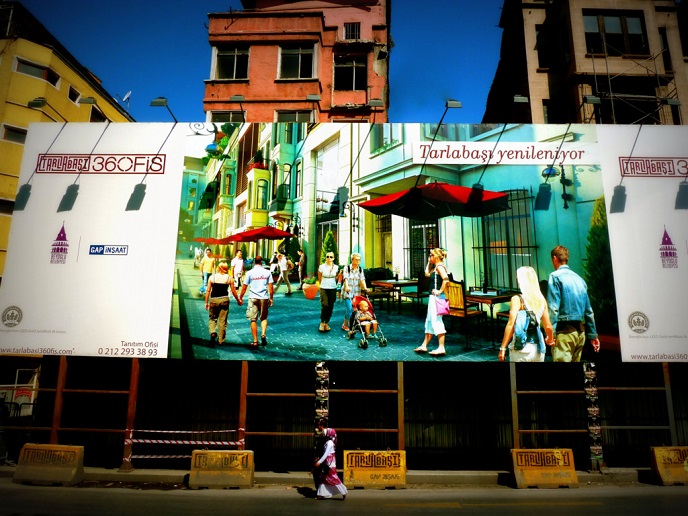Gentrification transforms a neighbourhood, but can also lead to gender inequalities
Gentrification, the process of a poor area transforming into a more affluent one, affects the way areas are gendered. It can also lead to changes in gender relations and the creation of gender inequalities. While there is literature on gentrification, there is a lack of knowledge on its relation to gender. Research leading the way The GGG project set out to address this by raising awareness of the different dimensions of the reconstruction of space and gender during gentrification processes in up-and-coming neighbourhoods in Amsterdam and Istanbul. The project had two objectives. First, the development of a comprehensive framework to analyse the reconstruction of space and gender in gentrifying neighbourhoods. Second, to analyse and compare gendered geographies of gentrification to shed light on contextually dependent as well as universal elements of gender constitution. “To realise the first objective, Dr Bahar Sakizlioglu, Marie Curie research fellow, carried out an extensive review of literature on the link between gender and gentrification,” explains Professor Loretta Lees, project coordinator and principle investigator. This resulted in the paper ‘Rethinking the gender-gentrification nexus’, which calls for a new agenda for studying this connection. The paper was published as a book chapter in the edited volume titled ‘Handbook of gentrification studies’. Prof. Lees and Dr Sakizlioglu went on to write a theoretical paper, ‘Rethinking the nexus of gentrification/displacement and social reproduction’, linking gentrification to social reproduction theory. “Inspired by feminist theory, the paper created a fresh framework to discuss the link between the two,” reports Prof. Lees. To realise the second research objective, Dr Sakizlioglu carried out a through literature review and prepared and conducted fieldwork in two gentrifying neighbourhoods, Tarlabasi in Istanbul and Indische Buurt in Amsterdam. Also, the project completed data analysis and produced two additional academic papers to be published in 2019. Looking at the results “The project’s research has made four significant contributions and improved the state of the art in urban and gender studies literature,” says Prof. Lees. It has bridged the urban and feminist studies, enriching the understanding of gender inequalities involved in the production of space, and developed a theoretical framework to study the gender and gentrification nexus. GGG has also contributed to literature with its comparative perspective on the gender-gentrification nexus and by embracing feminist ethnography. It has revealed the gendered nature, scope and impacts of displacement and gentrification, which have been largely overlooked in literature. Prof. Lees further notes: “Secondments, organised conference sessions, participation in seminars, and invited talks enabled networking and resulted in collaboration among the networked scholars.” This helped increase the transfer of knowledge within the academic community and generated feedback to increase the quality of the research. “The project has also enhanced research and innovation-related human resources, skills and working conditions,” says the professor, adding that “gendered inequalities involved in gentrification processes in different cities are now visible.” Looking towards the future Two working papers will be submitted for publication by the end of March 2019, and the results of the research will be presented at international conferences. Furthermore, Dr Sakizlioglu has been invited and will join seminars on gender and urban issues among the members of the Chambers of Architects, in March 2019 in Istanbul. Dr Sakizlioglu will continue to offer her expertise as a gender and housing expert at the Institute for Housing and Urban Development Studies of Erasmus University Rotterdam, the Netherlands.
Keywords
GGG, gender, gentrification, reconstruction of space, gentrifying neighbourhoods, social reproduction, feminist studies



